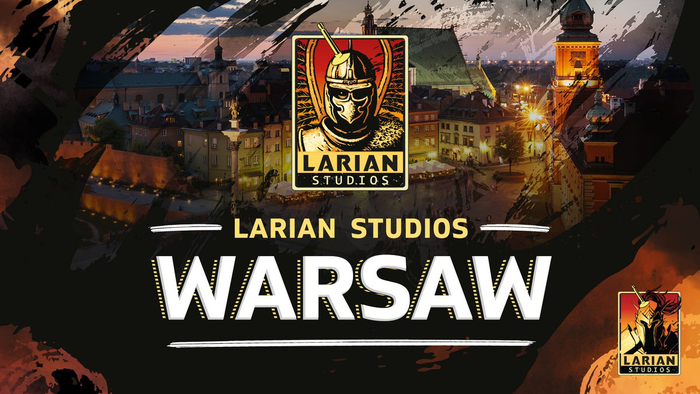Freedom, simplicity of solo development in The Next Penelope
The developers behind Hell Yeah! needed the game to be a big hit if Arkedo was going to keep making games. When Hell Yeah! fell short, one of Arkedo's founders tried something new.

Back when French studio Arkedo signed with Sega for quirky platformer Hell Yeah!, the indie company's future was pretty touch-and-go. The devs needed Hell Yeah! to be a big hit if Arkedo was going to keep making games. A few months after Hell Yeah! was released, the Arkedo team announced that it was going on hiatus . Founders Camille Guermonprez and Aurelien Regard still haven't "officially" laid the studio to rest, but Arkedo as a company remains inactive. But more than a year later, one half of that duo is now trying his luck in a solo mission. Regard recently revealed The Next Penelope, a futuristic, top-down racing game, as his first venture post-Arkedo -- and he tells me that his move from Arkedo to solo indie has been rather busy. "The transition has been pretty smooth, actually," he tells me. "Even after the official end of Arkedo, it wasn't really over. My friend Dimitri Pean (former Arkedo lead programmer) and I continued to work for months on a cute but pretty hardcore little game called Poof we started and loved at Arkedo." "I also wanted to try to do some code and music by myself for many years but never had the opportunity, so I looked at the bright side of the situation and started The Next Penelope as a one man band, in a very spontaneous move."

Since going solo, Regard has found the going really rather tough -- yet he's still very happy that he's doing his own thing now. "Today, I don't sleep much," he admits. "I don't have weekends off anymore and I have to handle serious business things I've never done before. But at the end of the day, it feels really great to learn so much." "There's this mix of freedom, full control and simplicity which pleases me a lot," he adds. "And even more important, I'm just a guy now, not a company. Maybe it's only because nobody but a niche of gamers knows me, but my relation with the public is super easy. We're just talking between regular humans on Twitter or at events, and the feedback I get this way has never been so constructive and direct." And, he notes, the outgoing costs associated with being an individual compared to being a studio are striking. The cashflow he needs to exist as a solo dev compared to when he was at Arkedo are close to nothing, so it means he's able to survive for much longer than before, and simply do his own thing. Regard has taken plenty of lessons from his time at Arkedo. For one, his work alongside Sega has taught him much about how publishers can drive games. "I'm the only one to decide the content," he says of The Next Penelope, "and this is the main lesson I learned from working with big publishers like Sega: I don't want to sign contracts where all the content is listed in advance anymore." "At first, it seems perfectly fine," he adds. "They pay X money for X amount of content. You would do exactly the same as a publisher! Yet one year and a half later, you will have to rush some part of the main game to make this useless companion app, DLC, or additional mode nobody cares about anymore because it was so rad... at the time you signed the contract."

Now Regard is happy to be in a situation where he can decide for himself what is reasonable, what gets cut, and what risks and ideas he can try out in his games. "This is one of the reasons you can do the worlds of Penelope in any order," he says. "If one is judged weak by the playtesters, I'll just toss it to get that level of polish I'm chasing on the other ones." Regard chose The Next Penelope as his first solo game, because he was interesting in building a racing game that featured a real story. In most racing games, he argues, "you don't even know why you're racing - you just guess you have to win a generic tournament or something." "Story, characters, bosses, could bring something different," he reasons, "and that's what I'm trying to do with this game set in a futuristic Odyssey." In this way, the dev is looking to build a racing game is what he believes is the opposing method for how these sorts of games are normally built -- that is, with solo play in mind first, rather than multiplayer. He wants the game to feel like an action-adventure game filled with strategy, rather than a Micro Machines-esque experience. There will be multiplayer, but it's the solo action that Regard is really interested in. "Penelope is meant to be very challenging," he adds. "You'll be powerful but very close to death at the same time. You'll gain special permanent abilities on each planet which you can mix and use anytime." "But everything is linked to your life bar, so if you shoot, you lose energy. If you boost, teleport, anything, you lose energy. Picture it as the F-zero GX boost mechanic, but applied to every single element of the game." The Next Penelope is due for release later this year on PC, Mac and Linux, and 2015 on Nintendo Wii U. Other console ports are also in the works, with other studios working with Regard to make this happen.
About the Author(s)
You May Also Like













